If white Christians are serious about building multiethnic churches, they need to start sharing power with Black and Brown people. That’s according to Dr Selina Stone who worries too much energy has been wasted by Black Christians on the issue. The Pentecostal theologian also speaks candidly with Sam Hailes about grief, church abuse and why studying theology at the highest level has deepened rather than dismantled her belief in God
One of my favourite questions to ask Christian leaders is: “How has your faith changed over time?” (And I’ll admit to always being slightly sceptical of people who struggle to come up with anything.)
Dr Selina Stone handles the “what’s changed?” question with more depth and maturity than most. The 37-year-old theologian is adept at holding fast to what was good, pure, true and lovely about her childhood faith while simultaneously critiquing the more problematic aspects. The pay-off from that hard thinking, in her words, is a “more expansive and humble” faith.
Stone’s faith flourished within the “vibrant community” of inner-city Birmingham in which she grew up. Her parents, who first met in church, were both keen on education – and so teaching and theology have always been constants in her life. She has fond memories of family Bible studies, prayer meetings and a mother and father who “took discipleship seriously”.
In the world that Stone grew up in, God was ever-present and ready to speak. You need only open your ears. “I was always encouraged to be open to spiritual gifts that God would give to us as children. God doesn’t discriminate because of age.
“I honestly can’t remember a time when I didn’t have a sense of God being close to me,” she tells me, recognising this is perhaps unusual. “And I think – even with all of the big questions I still have theologically – that keeps me grounded.”
Your PhD was in Pentecostal spirituality. What was your route into studying theology at the highest level?
I didn’t plan to do any of this. I did French and Spanish studies at the University of Birmingham initially because I loved languages and I loved learning about other cultures and history. In my final year, I did a lot of courses on post-colonial history in Africa, specifically French colonies. I had a lot of questions that were really theological questions, although I didn’t call them that at the time.
I remember trying to do a lot of fancy grad schemes and not getting anywhere with the applications. I prayed about it – and thought it unfortunate that I felt a call to go to Bible college! I fought it for ages and ignored all the signs that were pointing me in that direction, but I eventually gave in and went. That was the start of my academic journey of studying theology and religion and the Bible.
I didn’t expect to have my faith expanded in the way that it has over the years. I had classes where somebody would talk about the literal interpretation of Genesis and say: “You may have been raised to think there was a snake in the garden. We don’t have evidence that this literally happened.” I thought: Oh, my God, if that didn’t happen, then nothing’s true.
Learning to think critically has really helped me to navigate the complexities of life
But learning to think critically has really helped me to navigate the complexities of life. The very simple account of the Bible and of Christian doctrine that I inherited as a young person wasn’t robust enough to deal with life as it really is. As a young Pentecostal, miracles are taken for granted. I remember praying for somebody to come back from the dead, because I thought: Well, the Bible says it’s possible, so why don’t we believe that? But after living a little bit more, you realise it’s never that simple.
Studying theology has allowed me to have a faith that can handle the uncertainty of life and doesn’t put God in a box – where we end up with a formula that says: God always acts in this particular way. The skills I developed have actually helped my faith. I’ve ended up with something that’s much more expansive and humble, because I’ve realised that all of our theology is really just us trying our best to speak about a God that we cannot fully know. When we have that humility, it means we can be open to the perspective somebody else might give us. Studying theology has helped my faith more than it’s threatened it.
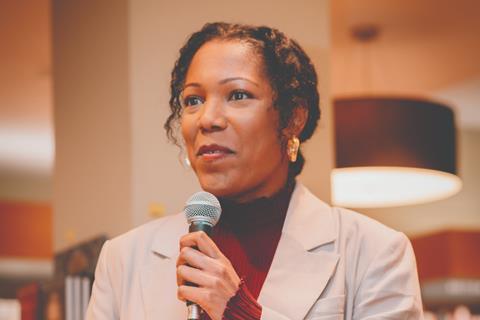
It sounds like there’s been a long journey of figuring out what from your childhood faith was good, true and real, and what wasn’t.
I came from a context where there’s a real desire to always talk about God’s victory. That leads to thinking that the Christian life is one where we’re going to experience victory, so we don’t bother to create resources to help when some things inevitably don’t happen.
When my mum got really ill, I had people in my Pentecostal world who couldn’t accept what was happening. I had to accept it and begin to come to terms with her dying, but that was a struggle.
When I needed to process my grief, I drew on the resources from broader traditions – I read St John of the Cross, who talks about the “dark night of the soul”. I drew on contemplative traditions that I hadn’t grown up with but were now available to me because I was in more Anglican and Roman Catholic spaces.
There wasn’t much in my Pentecostal heritage to help me when things didn’t work out the way that we prayed they would. But this is the benefit of being in a body [of believers (see 1 Corinthians 12)] – the foot might have what you need at a certain time, but if you think that all you need is a foot, you’re going to miss out on how the wider body can provide nourishment in your life. We miss out when we stay within our traditions and assume that those who think differently don’t have as good a Christian faith as ours.
We miss out when we stay in our traditions and assume those who think differently don’t have as good a Christian faith as ours
Are there expressions of Christian faith or theological ideas that are more predominant in Black majority church traditions which other parts of the Church can learn and take inspiration from?
There’s an exuberant welcome of the body as a vessel for worship. You’ll see dancing. You might see somebody running up and down. You might see somebody lying prostrate. Even something like a choir swaying in unison – all of this is about recognising the body as a place of encounter with God, and particularly with the Spirit.
Often, we don’t think through the theological ramifications of this – that we believe God took on flesh in the form of Jesus. This idea of incarnation is something that could really animate Christian theology in Pentecostalism and beyond. We can be quite suspicious about the body and see it as something that’s sinful and needs to be controlled. But Pentecostal theology says: “This body is a place that God is happy to dwell in.”
Church attendance in the UK has been declining for decades. Many have pointed out the decline would have been far worse were it not for immigration, and Christians coming from overseas and joining existing churches or starting new ones. Would you agree with that?
It’s an undeniable sociological reality that Black churches grew in significant numbers after Windrush and the immigration of Nigerians, Ghanaians and West Africans and others over decades.
At the same time, I find uncomfortable this kind of idea that says: Oh, it’s good that you’ve come, because now you can boost our numbers. We don’t really want other [non-Christian] people coming because they’re not going to help us keep our Christian stats moving in the right direction. It feels a little bit utilitarian to me.
For Christians who are against immigration, there can be a general thought: We don’t want lots of people coming here, but we do want a few who we particularly like. And I don’t think that, as Christians, we get to think in that way. You may know your favourite Black or Brown person who you sit next to in church and really like, but every one of those people you’re happy to see deported – or who you don’t want to let across the border – is that special, lovely person to somebody else.
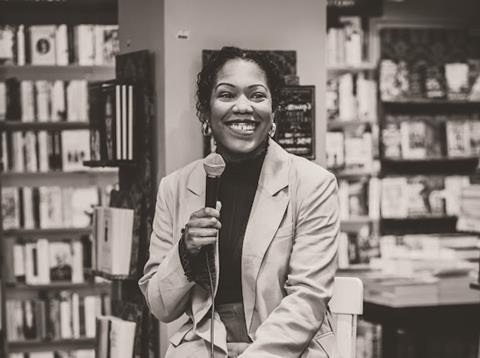
Much of the Church in the UK is still divided along racial lines. Do you have hope that barriers can be broken down, and do you think anything is different in the post-George Floyd and Black Lives Matter era?
Around George Floyd, there were a lot of interpersonal conversations happening between friends, couples and colleagues who talked about race. And then some organisations did some structural things. So, they may have launched investigations into their links to the slave trade. They may have done some special DEI [Diversity, Equity and Inclusion] work, or assigned money to some scholarships, or tried to build better relationships with their neighbours, which is all good and necessary stuff.
But trying to undo centuries of race-based oppression is going to take decades. This is why I’m not a fan of social media posts or statements in general, because that is not how you make change. It takes consistent energy over time, and this is just not a priority for most people. That doesn’t mean people are evil and bad, because life is life, and people have a range of things that they’re concerned about. But I’m not surprised that it’s dissipated.
Trying to undo centuries of race-based oppression is going to take decades
This may be really cynical of me, but I can’t imagine the future being full of really multicultural, ethnically mixed churches in the UK, because it’s just not a priority for lots of people. My personal concern is for Black people to have spaces where they can worship God “in…Spirit and in truth” [John 4:24], free from experiences of racial oppression. That may look like them doing that in Black churches, which is fine with me.
But doesn’t the New Testament articulate a vision of Church where people of every tribe and tongue, background and ethnicity do come together in unity around Jesus (see Ephesians 3:10 and Revelation 7:9)? Shouldn’t we be striving for multicultural churches because they speak of our unity in Christ which transcends skin colour?
I really hear that. That is the ideal, and that is what Black people have believed, right? So when our grandparents and our parents came here, they believed that vision, and they went to [white majority] churches, but they were told: “Don’t come back.”
So, my pushback would be, I believe in this vision, but I’m not sure white people believe in this vision.
I’m more than happy to rally the Black and Brown people to say: “Let’s build multicultural churches” once there is a good cohort of white people who actually want to do the work of building those churches, but I don’t believe that’s what we have.
A lot of Black energy has been wasted trying to convince white people to believe in this vision. So, I would love to see a revolution among white Christians in Britain, where they start to really desire and long for multicultural churches where they share power with Black and Brown people, not the kind of multicultural church where all the power holders are white.
What was the impetus for your new book A Heavy Yoke, which explores the topic of abuse in the Church?
I seem to have a problem with always tackling the big topics! I need to do something light and fluffy next, maybe about food or music or something [laughs].
I’d been thinking about questions of power in leadership, but with all these stories coming out in the press I thought: I can’t talk about power in a generic sense. I need to talk about it in terms of abuse of power.
It seemed that every few months, something new was emerging [about abuses of power] in the press. I hate that I have to write a book like this, because this shouldn’t be happening at all. But I felt compelled, because I just felt so moved and saddened and angered by the stories I was hearing from victims and survivors about their experiences in the Church. Instead of being in a community that’s like a family, people are encountering predatory behaviour. I felt compelled to call us to think more clearly about what was going wrong and how we might address that.
In the book, you point out that spiritual gifts such as prophecy, which are especially prevalent in Pentecostal and charismatic churches, have the potential to be misused. How can Christians grow in discernment so we’re better able to stop these gifts from being abused?
Discernment is a very difficult thing to define, let alone try to teach or explain to somebody. There are elements of discernment that are a gift of the Spirit, and elements we can cultivate and learn as a spiritual practice together.
One of the most important things I was taught was that discernment requires you to have already cultivated a familiarity, a friendship, with the Spirit. Then you begin to know what it sounds like when the Spirit is speaking. I was taught as a young person that the Spirit never speaks in ways that bring about shame. The Spirit never speaks in ways that are condemning.
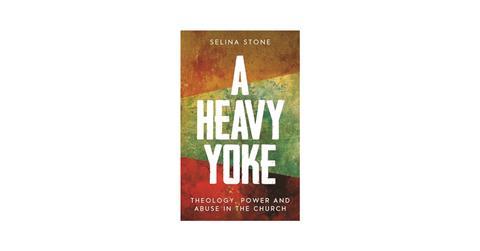
And the Spirit never goes against what scripture teaches…?
Even that becomes complicated, because there are so many ways of understanding what scripture says. But this idea of “testing the spirits” (see 1 John 4:1) is important.
We have a bit of an epidemic of people calling themselves prophets and apostles today. But did we actually test the gift? Did we actually check back a week or a month later and ask: “Did that happen the way he or she said it would happen?”
When I look at scripture and I see people being called prophets, that is not a name they call themselves. It’s a name they’re called by the community, because people can see that when they say something, it happens.
There’s a really important need to cultivate our own sense of connection with the Spirit – through our own prayer time, contemplation, meditation, reading of the scripture – so when we hear something that contradicts what we’re receiving from God ourselves, we know to reject it. And I think it’s important that we give people permission to say: “Actually, in my own discernment, I don’t think that’s right.”
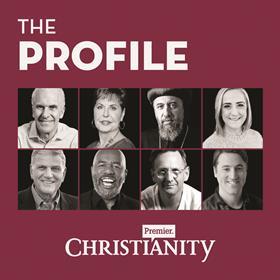
It’s important that people have a sense of agency around the words that may be given to them from God.
And I think any person who claims to be a prophet – or have a prophetic gift – who doesn’t want to be tested, that’s the number one red flag that they are probably speaking from themselves.
To hear the full interview listen to Premier Christian Radio at 8pm on Saturday 20 September or download The Profile podcast



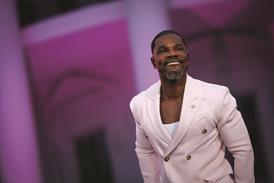










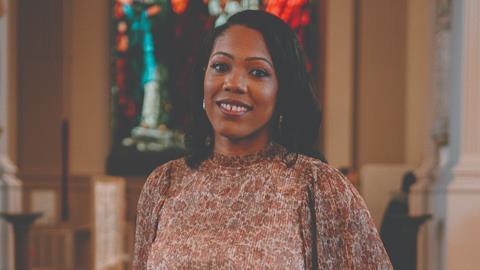


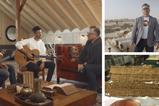
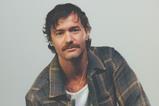
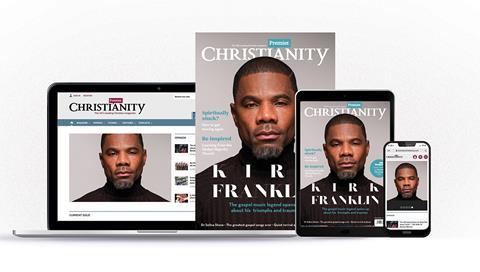




















No comments yet